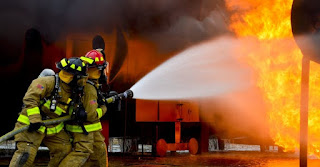Snow and Ice Removal and "Natural Accumulation" in Illinois
As I write this post, Central Illinois is having a severe ice storm on the heals of a very wet Christmas. Thus I read with interest today the First District Illinois Appellate Court's recent decision in Murphy-Hylton v. Lieberman Management Services, Inc., as to the scope of the Snow and Ice Removal Act and "natural accumulation."
At Illinois common law, a landowner has no duty to remove natural accumulations of snow, but can have a duty to remove unnatural accumulations, and if undertaking to remove snow, can incur liability if done negligently. The Act changed the common law to provide immunity for injuries sustained by a person as a result of attempts to clear snow or ice, albeit negligently.
In Murphy-Hylton, the plaintiff apparently injured herself by slipping on a patch of ice on an otherwise clear sidewalk. Her complaint did not allege negligent removal of snow or ice. Instead, the plaintiff argued that her injury was caused by the defendant's negligent and defective property maintenance or construction. She apparently alleged that the ice patch in question was caused by a faulty downspout installation, causing gutter runoff to flow onto the sidewalk and then puddle and freeze.
After the trial court had granted summary judgment for the defense based on the Act, the appellate court reversed, and held that the Act does not apply in such a case, and therefore the defendants were not immune from liability for the alleged damages. In doing so the First District Appellate Court concurred with the Fourth District's holding in Greene v. Wood River Trust, and disagreed with the Second District's decision in Ryan v. Glen Ellyn Raintree Condo. Ass'n, although noting that the strict holdings of the two decisions do not necessarily conflict as applied to the facts of this case.
These are important decisions to clarify the potential liability of condo and homeowner associations, property managers, snow removal contractors, and where defective building construction/design is alleged as in this case, general contractors and architects. It is also important to show the importance of the specific pleading of plaintiff's allegations, in terms of potentially implicating an entirely different class of defendants, and determining applicability of insurance coverage.
Nate Hinch is an attorney and partner at the law firm of Mueller, Reece & Hinch, LLC. He has offices at 404 N. Hershey Road, Suite C, Bloomington, IL 61704, and 809 Detweiller Drive, Peoria, IL 61615, and can be reached by phone at (309) 827-4055 and email at nhinch@mrh-law.com.


This comment has been removed by a blog administrator.
ReplyDelete